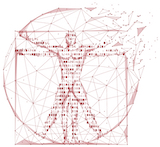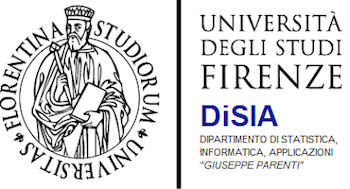

- This event has passed.
DISIA Welcome Seminar
November 3, 2022 @ 11:00 - 12:30

– Next WELCOME SEMINAR –
Thursday 3rd of November 2022, 11.00 am
Speaker: Francesco Sera & Gianluca Severi.
Location: Aula 205 (ex 32) – DISIA – Viale Morgagni 59
Speaker: Francesco Sera.
Title: Extended two-stage designs for the evaluation of the short-term health effects of environmental hazards.
Abstract: The two-stage design has become a standard tool in environmental epidemiology to model short-term effects with multi-location data giving valuable information for preventive public health strategies. In the seminar, I illustrate multiple design extensions of the classical two-stage method. These are based on improvements of the standard two-stage meta-analytic models along the lines of linear mixed-effects models, by allowing location-specific estimates to be pooled through flexible fixed and random-effects structures. This permits the analysis of associations characterised by combinations of multivariate outcomes, hierarchical geographical structures, repeated measures, and/or longitudinal settings. The design extensions will be illustrated in examples using data collected by the Multi-Country Multi-City research network.
Biosketch: Francesco Sera is a Research Fellow at the University of Florence. Francesco is a statistician and epidemiologist and he has worked on several epidemiological projects with more than 180 publications. His current research interests focus on short-term health effects of environmental exposures such as temperature and air pollution, and related methodological aspects, such as time series models, and pooling results from multi-centre studies. Working with colleagues of the Multi- Country Multi-City MCC Collaborative Research Network contributed to increasing the evidence on environmental exposure health-impact with papers published in high-impact journals.
Speaker: Gianluca Severi
Title: New approaches to the study of individual susceptibility, lifestyle and the environment and their role in human health.
Abstract: The term exposome has been coined to describe the multiple, often interacting dimensions of our behaviours as well as the environmental and socio-economic context in which we live. The concept of human exposome may be helpful to build more realistic models to answer key questions such as how diet, physical activity and environmental exposures affect our health but the implementation of the “exposome approach” poses several challenges. In this seminar I will discuss some of these challenges using examples of research I conduct with my team on the human exposome and its influence on health and disease, focusing in particular on chronic diseases such as cancer. In particular, I will draw examples from studies nested within prospective cohorts such as the Melbourne Collaborative Cohort Study, the familial E3N-E4N cohort, EPIC and Constances in which we use concepts such as exposome, biological fingerprint and molecular signature to better characterize risk or protective behaviours, quantify environmental exposures, explore pathological mechanisms and improve risk prediction.
Biosketch: I am an Associate Professor of biostatistics and epidemiology at the University of Florence and a Research Director at Inserm where I lead the “Exposome and Heredity” group (CESP U1018). After an initial career as biostatistician at the European Institute of Oncology in Milan, I completed a PhD in cancer studies at the University of Birmingham and pursued a career as a molecular epidemiologist working mainly on cancer. After almost 10 years in Melbourne, Australia as Deputy Director of the Cancer Epidemiology Centre of the Cancer Council Victoria, in 2013 I moved back to Europe to take up the role of Director of the Italian Institute for Genomic Medicine in Turin (aka HuGeF) and to further its development before moving to my current research and teaching positions. My main research interest is the use of innovative tools to study the exposome and its related biological fingerprints (e.g. epigenetic marks) and to identify the key physiological systems and health outcomes affected by the exposome.